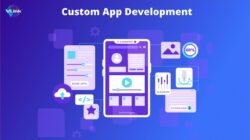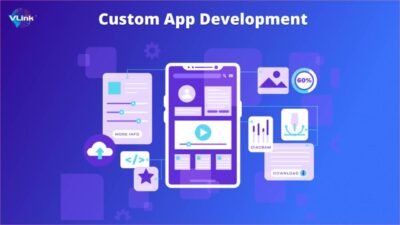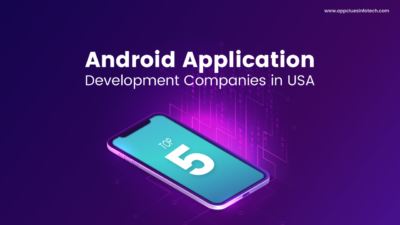In the dynamic world of technology, an app design firm plays a pivotal role in creating applications that not only function seamlessly but also provide an engaging user experience. This sector is essential for businesses looking to establish or enhance their digital presence, ensuring that their applications meet user needs while being visually appealing and easy to navigate.
From brainstorming innovative ideas to executing complex designs, an app design firm harnesses a blend of creativity and technical expertise. Understanding the various aspects of app design, including user interface (UI) and user experience (UX), is crucial for developing successful applications that resonate with target audiences.
In the contemporary landscape of education and employment, digital literacy has emerged as a fundamental skill. With rapid technological advancements, understanding how to effectively navigate the digital realm is no longer optional; it has become a necessity. This article explores the significance of digital literacy, its components, and how it shapes the future of individuals and society as a whole.
What is Digital Literacy?
Digital literacy encompasses a variety of skills and competencies that allow individuals to find, evaluate, create, and communicate information using digital technologies. It goes beyond mere computer proficiency; it includes critical thinking, information literacy, and the ability to use the internet responsibly.
Components of Digital Literacy
Digital literacy consists of several key components:
- Technical Skills: The ability to use devices such as computers, smartphones, and tablets, along with software applications and online platforms.
- Information Literacy: The skill to locate, evaluate, and synthesize information from different digital sources effectively.
- Communication Skills: The ability to interact and collaborate with others through digital means, including social media, emails, and video conferencing.
- Critical Thinking: The capacity to analyze and evaluate digital content critically, discerning credible information from misinformation.
- Ethical and Responsible Usage: Understanding the ethical implications of digital engagement, including privacy concerns, copyright laws, and online behavior.
Why is Digital Literacy Important?
In an age where most information is accessed online, being digitally literate opens up numerous opportunities. Here are some reasons why digital literacy is crucial:
1. Employment Opportunities
Employers increasingly seek candidates who possess strong digital skills. From basic computer use to proficiency in specialized software, candidates who are digitally literate have a competitive edge in the job market. Many industries now rely on digital tools and platforms; hence, having the ability to navigate these technologies is essential for career advancement.
2. Access to Information
Digital literacy enables individuals to access a wealth of information online. This is particularly important in educational contexts, where students can find resources that enhance their learning. It empowers individuals to pursue self-directed learning, enabling lifelong education and personal development.
3. Enhanced Communication
In a globalized world, effective communication is vital. Digital literacy allows individuals to connect with others worldwide, fostering collaboration and cultural exchange. Whether through social media, email, or professional networks, being able to communicate effectively in a digital space is a valuable skill.
4. Critical Consumption of Information
With the rise of misinformation and fake news, being digitally literate equips individuals with the skills to critically assess the information they encounter. Understanding how to evaluate sources and discern credible information helps combat the spread of false narratives and promotes informed decision-making.
5. Civic Engagement
Digital literacy enhances civic engagement by providing individuals with the tools to participate in democratic processes. Whether through online petitions, social media activism, or digital voting initiatives, being digitally literate allows people to voice their opinions and engage with societal issues.
Digital Literacy in Education
Recognizing the importance of digital literacy, educational institutions are incorporating it into their curricula. Schools and universities are developing programs that teach students not only how to use technology but also how to think critically about the information they encounter online.
Integrating Digital Literacy into Learning
To foster digital literacy, educators can:
- Incorporate Technology in Lessons: Use digital tools to enhance traditional teaching methods, making lessons more engaging and relevant.
- Encourage Research Projects: Assign projects that require students to find and evaluate information online, helping them develop information literacy skills.
- Promote Digital Citizenship: Teach students the importance of ethical online behavior, including respect for copyright and privacy.
- Facilitate Online Collaboration: Encourage group work through digital platforms, fostering communication and teamwork skills.
Challenges and Barriers to Digital Literacy
While the importance of digital literacy is clear, several challenges impede its widespread adoption:
1. Access to Technology
Not everyone has equal access to digital devices or high-speed internet, creating a digital divide. Addressing this inequity is crucial for ensuring that all individuals can develop their digital literacy skills.
2. Rapidly Changing Technology
The fast pace of technological advancement can make it difficult for individuals to keep up. Continuous learning and adaptability are necessary for staying current with new tools and platforms.
3. Lack of Training
Many individuals, especially older adults, may lack formal training in digital skills. Providing accessible training programs can help bridge this gap and promote digital literacy across all age groups.
Conclusion
In today’s digital-first world, mastering digital literacy is essential for personal and professional success. It empowers individuals to navigate information, communicate effectively, and engage responsibly in the digital landscape. As technology continues to evolve, prioritizing digital literacy for all will be crucial in building a knowledgeable and engaged society. By investing in digital skills development, we can prepare current and future generations to thrive in a technology-driven world.
Query Resolution
What services do app design firms offer?
App design firms typically offer services such as UI/UX design, prototyping, app development, and post-launch support to ensure the app meets user needs effectively.
How long does it take to design an app?
The timeline for designing an app can vary greatly depending on its complexity, but it generally takes several weeks to months from concept to launch.
What factors affect the cost of app design?
Factors such as app complexity, features, design requirements, and the experience level of the development team can significantly influence the overall cost of app design.
Can an app design firm help with app marketing?
Many app design firms offer marketing services or can collaborate with marketing experts to help promote the app post-launch, focusing on strategies to reach the target audience.
What is the difference between UI and UX design?
UI (User Interface) design focuses on the visual elements of an app, while UX (User Experience) design emphasizes how users interact with the app and their overall experience.












